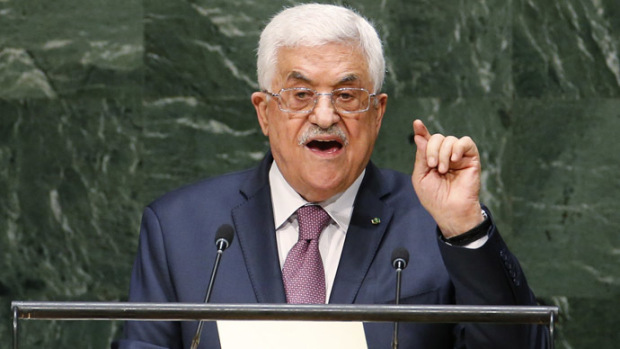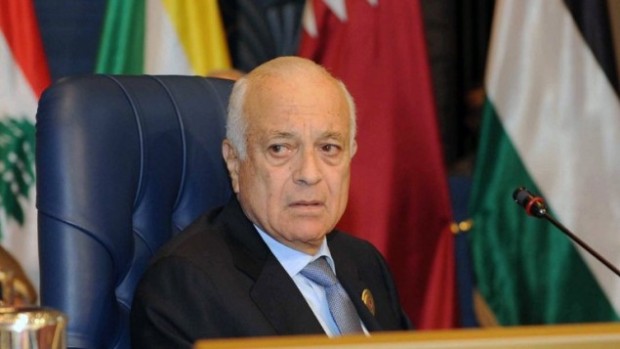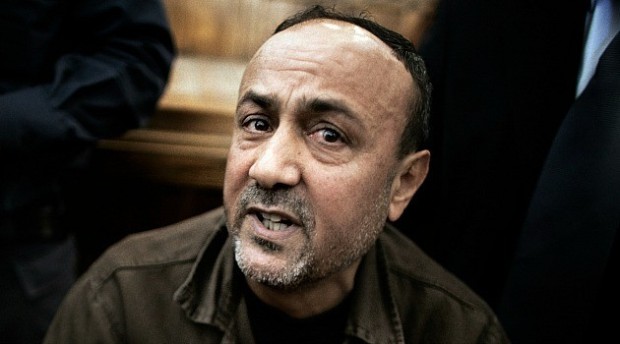Tzipi Livni, Israel’s lead negotiator at the failed peace talks with the Palestinian Authority, has issued a warning that Israel should heed.

Livni, the minister of justice in Prime Minister Benjamin Netanyahu’s right-wing government, said that Israel has two choices: “Either we resume negotiations with the Palestinians to reach a permanent agreement, winning the world’s support, or we find ourselves isolated.”
Simple but true.
Without a resumption of talks, she suggested, Israel will likely face diplomatic pressure from abroad and charges of war crimes for its prosecution of Operation Protective Edge in the Gaza Strip this past summer. As well, she added, Israel will probably be forced to fight yet another border war with Hamas within two years.
Contrary to the opinion of some of her fellow cabinet ministers, Livni believes that the president of the Palestinian Authority, Mahmoud Abbas, and his circle of advisers are moderates with whom Israel can work.
“We must seize this opportunity to talk to them,” she declared recently.
She’s right, of course.
Israel cannot continue to occupy the West Bank and deny the Palestinians statehood. It’s an untenable and intolerable situation that smacks of colonialism and must end, the sooner the better.
Recently, Netanyahu raised the prospect of “a new, responsible diplomatic initiative” in the aftermath of the seven-week long Gaza war. What he has in mind is unclear, however, since he and his key ministers are deeply skeptical of Palestinian intentions and oppose a geographically-contiguous Palestinian state.
A toy Palestinian state will not suffice.
Furthermore, in yet more unilateral moves, Israel continues to expand Jewish settlements in the West Bank. On Aug. 31, Israel laid claim to almost 1,000 acres of land in the Etzion bloc of settlements, a measure the United States, its chief ally, described as “counter-productive to Israel’s stated goal of a negotiated two-state solution.”
Short-sighted measures like these, which pander to narrow nationalist sentiment in the country, strengthen the hand of Hamas and undermine Palestinian moderates like Abbas, whom Israel’s former president, Shimon Peres, has described as a reliable and trustworthy partner.

The day is approaching when a two-state solution will no longer be possible. In the first half of 2014, Israel’s Jewish population in the West Bank increased by 2 percent to 382,031. The increase was driven by natural growth and an influx of Jews drawn to the West Bank for ideological, economic or lifestyle reasons.
“This did not happen by chance,” noted Palestinian spokeswoman Hanan Ashrawi. “This is a matter of Israeli support and Israeli government and official support.”
Until this past April, Israel and the Palestinian Authority spent nine months trying to devise a peace agreement. Ostensibly, the American-sponsored talks broke down after Israel refused to release a third and final batch of Palestinian prisoners and the Palestinian Authority signed a reconciliation pact with Hamas. But the real reason for the collapse was Israel’s unwillingness to impose a genuine building freeze in the West Bank, consider a withdrawal to the pre-1967 armistice lines or agree to equitable land swaps with the Palestinians.
Netanyahu claims to be in favor of a two-state solution, but his actions speak louder than his words. Lip service is not enough.

In a speech before the United Nations’ General Assembly on Sept. 26, Abbas called for an immediate resumption of peace talks to resolve final status issues such as borders, refugees and settlements. But he declared that he would not return to the previous “cycle of negotiations” that ended in a flurry of accusations and counter-accusations.
It would be impossible, he went on to say, for the Palestinian Authority to “repeat methods that have proven futile or to continue with approaches that have repeatedly failed and require comprehensive review and radical correction.”
According to reports, Abbas plans a shift in strategy. Next month, he reportedly intends to present a proposal to the UN Security Council that would “push forward efforts to achieve peace” within three years.

The head of the Arab League, Nabil el-Araby, says that Abbas is ready for “real negotiations” with Israel. If an agreement on borders, East Jerusalem and security arrangements can be reached, he noted, a peace accord could be signed within a week.
If, as expected, the United States vetoes Abbas’ plan, he may have no alternative but to join the International Criminal Court, which would exert tremendous pressure on Israel to modify its destructive settlement policies in the West Bank.
Whatever happens in the months ahead, the status quo in the West Bank is unsustainable. It’s a source of constant tension, an unjust affront to the Palestinians, a recruiting tool for Islamic extremists and a ticking time bomb that could destroy Israel’s status as a democratic Jewish state.
The Palestinians are clearly fed up with the impasse, and should be. Marwan Barghouti, the imprisoned Palestinian leader, has correctly pointed out that 20 years of on-again, off-again negotiations since the start of the Oslo talks have given the Palestinians neither self-determination nor freedom.
“I do not see that Israel is ready for real peace, but wants to use fruitless negotiations to continue its occupation and to ease its international isolation,” he said. “The Palestinians must make the price of the occupation dear on Israel.”

Barghouti calls on his followers to join the boycott, divestment and sanctions campaign against Israel and to launch an armed uprising in the West Bank.
One can only hope that the Israeli government will come to its senses before the Palestinians run out of patience and promote a one-state solution instead of a two-state solution.
It’s imperative for Israel to do the right thing, for moral and strategic reasons.
Let Netanyahu listen to Tzipi Livni before it’s too late.

